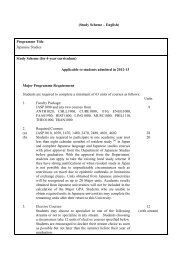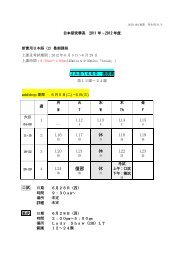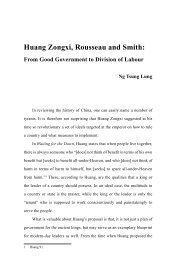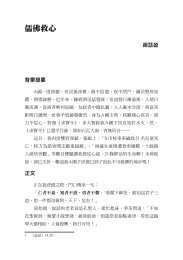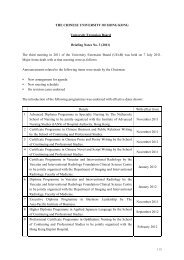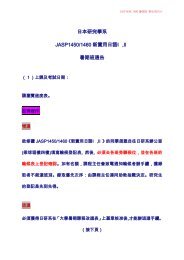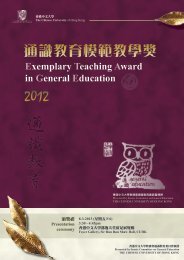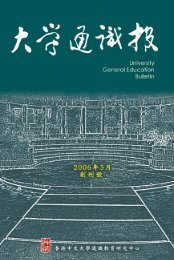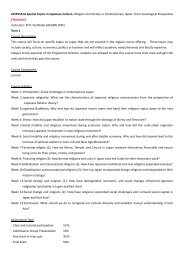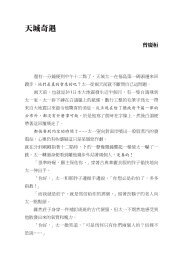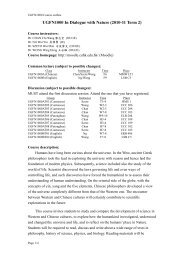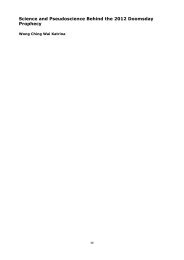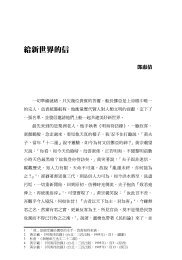ä¸è¼å ¨æ¸ - The Chinese University of Hong Kong
ä¸è¼å ¨æ¸ - The Chinese University of Hong Kong
ä¸è¼å ¨æ¸ - The Chinese University of Hong Kong
You also want an ePaper? Increase the reach of your titles
YUMPU automatically turns print PDFs into web optimized ePapers that Google loves.
Wyman Kwok, Education and Thinking 209<br />
Figure 1 above shows an advertisement for a course intended to teach<br />
people how to use an ancient <strong>Chinese</strong> classic, the I Ching, to help them predict<br />
trends in the financial markets. Two items should be noted in the message<br />
when assessing whether or not the course is pseudoscientific in character.<br />
<strong>The</strong> first is the claim that the method followed in the course is scientific,<br />
which is suggested in the title <strong>of</strong> one <strong>of</strong> its topics, “<strong>The</strong> Scientific Nature <strong>of</strong><br />
the Predictions <strong>of</strong> the I Ching.” This is important, because for something<br />
to be pseudoscientific, it is necessary that the claim first be made that it is<br />
scientific. “Pseudoscience” should not be confused with “nonscience.” A<br />
pseudoscience is a nonscience, but a nonscience may not be a pseudoscience.<br />
Art is usually not claimed to be a science, so although it is a nonscience, it is<br />
not a pseudoscience.<br />
<strong>The</strong> second item <strong>of</strong> note relates to a common mark <strong>of</strong> pseudoscience,<br />
namely, the violation <strong>of</strong> well-established scientific beliefs. In the advertisement,<br />
the smallest <strong>Chinese</strong> characters in the text first state that even experts <strong>of</strong><br />
financial markets mostly make wrong predictions about market trends. An<br />
explanation is then provided for this situation: even experts can only make<br />
predictions about the future based on past or current information, but not<br />
directly extract information from the future. This leaves the impression<br />
that its method is superior in that it can directly extract information from<br />
the future! Nevertheless, proclamations like this one can only reveal the<br />
writer’s ignorance <strong>of</strong> science or, to us, the pseudoscientific character <strong>of</strong> the<br />
course. Anybody who is knowledgeable about the rudiments <strong>of</strong> scientific<br />
<strong>The</strong> <strong>Chinese</strong> original: 易 經 預 測 的 科 學 性 。<br />
<strong>The</strong> <strong>Chinese</strong> original: 究 其 原 因 這 些 專 家 的 意 見 都 是 根 據 過 去 與 現 在 的 資 信 來 推 斷 未<br />
來 的 發 展 而 非 直 接 攝 取 未 來 信 息 。



